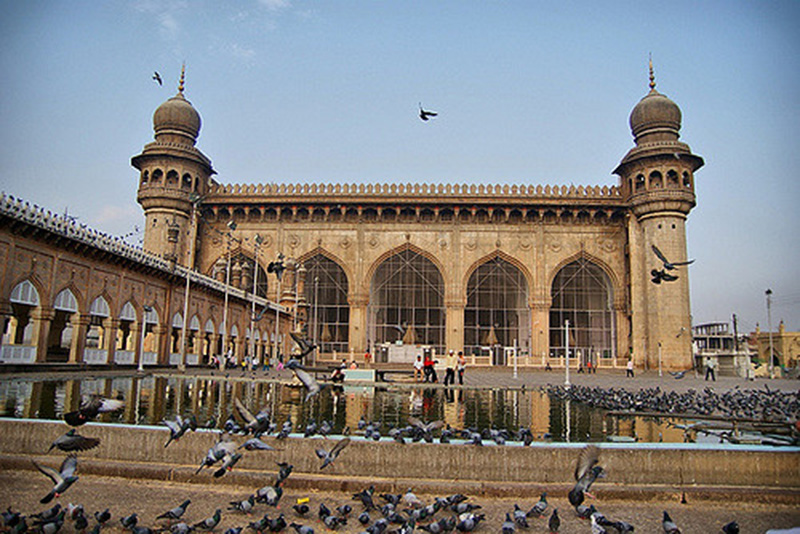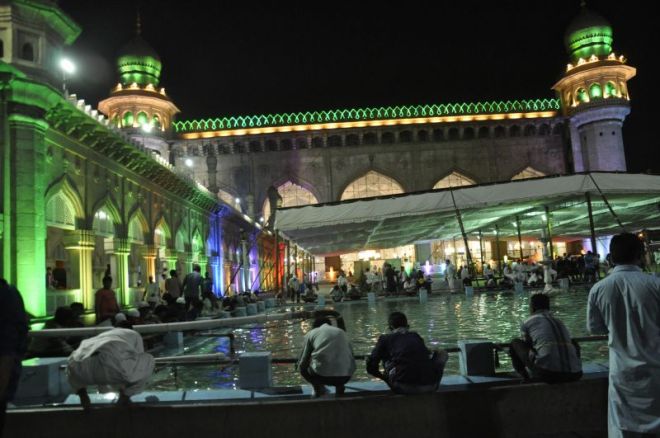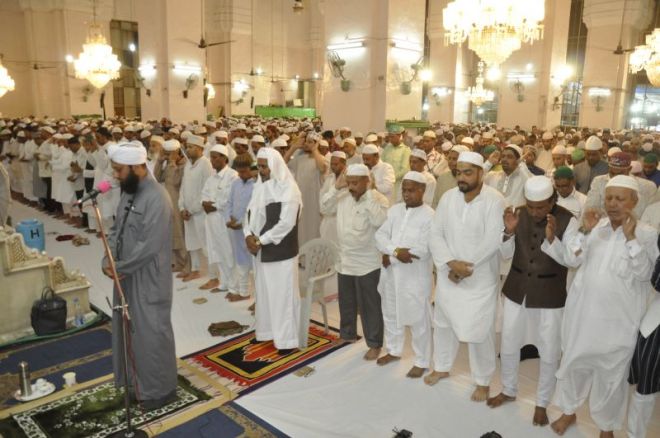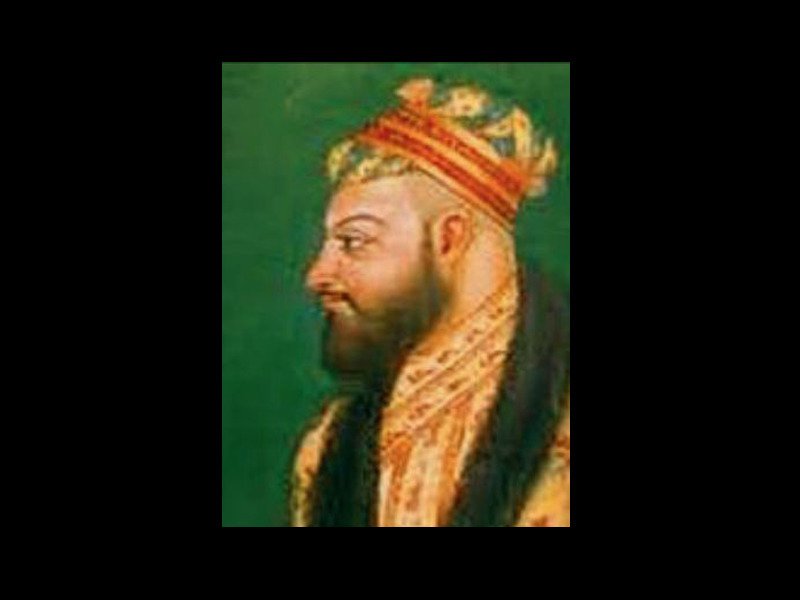Hyderabad, TELANGANA :
Hyderabad:
Makkah Masjid in Hyderabad is one of the biggest mosques in India and the foundation stone for its construction was laid during 1616-17 CE and the foundation was laid by the Qutub Shahi ruler, Sultan Mohammad Qutub Shah VI.
The construction was completed by Mughal Emperor Aurangzeb in 1694 after 77 years.
The mosque is also listed as a heritage building. The Masjid is built in granite and the bricks for its construction were brought from Mecca, the holy city of Saudi Arabia.
source: http://www.siasat.com
The chief mason was Rangaiah Chowdhury while the engineer was Faizullah Baig.
The prayer hall can accommodate 10,000 people owing to its large size with dimensions of 75 feet high, 180 feet long and has a width of 220 feet.
According to the information available on the Hyderabad.org.uk, it is believed that a strand of Prophet Mohammed’s hair is preserved in a room in the mosque’s courtyard.
There are 15 intricately designed arches that support the roof of the main hall, in which 5 arches were constructed on 3 walls. The mosque is decked with Belgian crystal chandeliers, which adds to the beauty of the exquisitely designed interiors of the mosque. Inside the mosque, there are 5 passageways and tombs of the rulers belonging to the ‘Asaf Jahi’ dynasty.
According to the news reported in Times of India, during the Qutub Shahi rule, Iran was specifically mentioned in Friday sermons in all mosques in Hyderabad and elsewhere in the Qutub Shahi kingdom.
According to the historian Abdul Majeed Siddique in his ‘History of Golcunda (1956)’ one of the reasons for the Mughal rulers to attack the Qutub Shahi kingdom was the recital of the name of the Shah of Iran (Safavid dynasty) in Friday sermons. Emperor Shahjahan was so angry that he sent a letter to Abdullah Qutub Shah VII to stop mentioning the name of the Shah.
Historian Abdul Majeed Siddique quotes Emperor Shahjahan’s words that order “the abandonment of the name of the Safavid King and replacement thereof by the emperor’s own name in both, the Friday sermons and coins”.
Currently, the restoration works are being done to welcome the Iranian President Dr. Hassan Rouhani who will be the first Iranian President to address the congregation, though he is the second leader to visit the mosque. After the Islamic Revolution in 1979, Mohammad Khatami became the first Iranian President to visit Hyderabad (January 28, 2004), but he did not participate in the Friday congregation.
source: http://www.siasat.com / The Siasat Daily / Home> Hyderabad> News> Top Stories / February 15th, 2018













